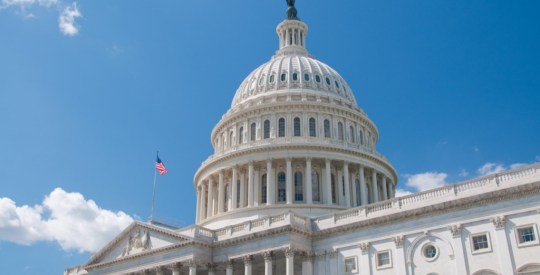While 2019 may still seem like a long way away, U.S. economists are already taking a look at the year and forecasting its growth.
Economic growth in the U.S. is expected to remain above average through the end of 2019 but could fall back from growth levels seen in 2018, according to Steven Rick, CUNA Mutual Group director and chief economist.
The economy could see its growth fall back from about 3% in 2018 to a more moderate 2.3% in 2019, Rick explained. If this forecast is correct and economic expansion continues into next year, it will become the longest expansion in U.S. history.
“We continue to enjoy one of the most prosperous stretches of economic expansion in our country’s history, and this positive economic climate has greatly benefitted credit unions,” Rick said. “Today, there are more job openings than unemployed people in this country, marking the first time that’s ever happened.”
“Unemployment sits at about 4% now, and should fall as low as 3.4% in coming years – far below the expected long-term unemployment rate of 4.7%,” he said.
Fannie Mae also recently predicted economic growth will rise to 3% in 2018, according to its August 2018 Economic and Housing Outlook. And the Economic and Strategic Research Group also predicted that growth will fall back to 2.3% in 2019.
However, Fannie Mae explained that this growth outlook is not due to the housing market, which is actually creating a drag on the economy.
“Breakneck headline growth in the second quarter disguised a detail largely responsible for the latest upward revision to our full-year growth forecast: a need to restock declining business inventories, which we expect will support greater growth amid weakness elsewhere,” Fannie Mae Chief Economist Doug Duncan said. “Housing continues to drag on growth due to lackluster homebuilding activity, home sales, and brokers’ commissions; and its overall weakness likely reflects continuing inventory shortages, rather than a decline in demand.”
“While meaningful wage growth remains elusive, the labor market is strong and inflation appears to be gaining additional steam, making a Fed rate hike in September highly likely,” Duncan said. “Assuming consumer and business confidence can steer clear of escalating trade tensions, we expect the Fed to raise rates two more times in 2018, including next month.”
But while 2018 and 2019 are expected to see continued economic growth, that could all change in 2020.
“Whenever savings rates drop to 3% or 4%, expect a recession the next year,” Rick said. “Given how consumer confidence is at its highest level in 18 years – prior to the dotcom crash – it’s no surprise that people are buying instead of saving.”
“We are now down to 3%, so a recession by 2020 seems likely, but we should not be worried about it resembling what we experienced a decade ago in 2008,” he said.
In fact, many experts agree 2020 will bring the next recession, with some even predicting growth will begin to fall at the end of 2019.





